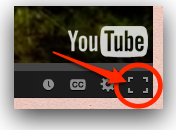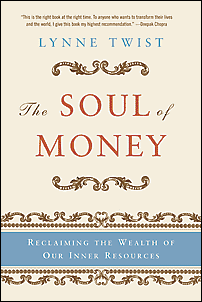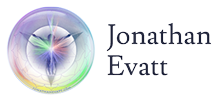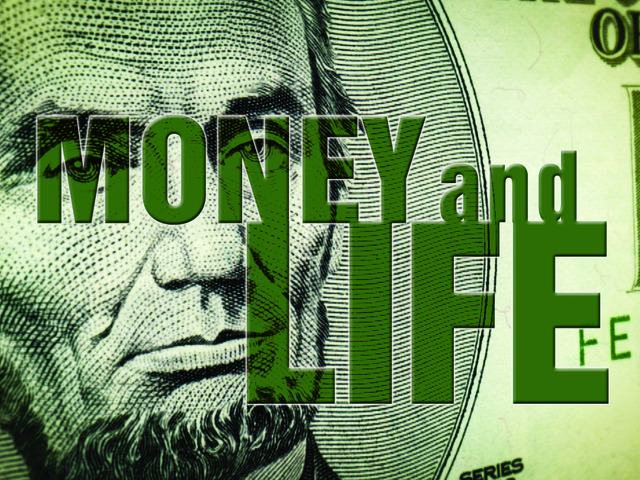Last Updated on August 16, 2015
Here’s what I consider to be an important documentary. It takes a meaningful look at the money and the role we (as people, and as a society) have ascribed to it in our lives. With money being as central as it is to modern life, to your life, this documentary is well worth watching and sharing. Among other things, this documentary explores the history of money; debt, GDP; the function of money; the creation of money; the fallacy of money; the serious issues of our money system; the future of money; interest; fiat currency; the artificial creation of scarcity; and more.
[youtube id=”VB5HOYdlGE8″ align=”center” mode=”normal” autoplay=”no” maxwidth=”1000″ parameters=”?modestbranding=1 controls=2 showinfo=0″]

View in full-screen
Hit full-screen for a better viewing experience.
Please support and learn more about this documentary here.
There is a Facebook page for this documentary here. Please Like and Share it.
Money & Life was funder through a Crowd Funding initiative. You can learn more about that here.
Recommended Reading
Here’s a great list of books on the subject of money, and alternative ways forward:
 The Soul of Money: Reclaiming the Wealth of Our Inner Resources by Lynne Twist
The Soul of Money: Reclaiming the Wealth of Our Inner Resources by Lynne Twist
This compelling and fundamentally liberating book shows us that examining our attitudes toward money—earning it, spending it, and giving it away—can offer surprising insight into our lives, our values, and the essence of prosperity. Through personal stories and practical advice, global activist Lynne Twist demonstrates how we can replace feelings of scarcity, guilt, and burden with experiences of sufficiency, freedom, and purpose. Twist takes an honest and critical look at the extraordinary power that money wields over our lives and its profound and often destructive influence on our self-image and relationships. In a consumer society that glorifies the pitch, the sale, and the insatiable appetite for more as a measure of self-worth, ?The Soul of Money? asks us to step back, to examine our relationship with money, to assess our connection with core human values, and to change this relationship and, in so doing, to transform our lives.

Agenda for a New Economy, from phantom wealth to real wealth by David Korten
Korten has fleshed out his vision of the alternative to the corporate Wall Street economy: a Main Street economy based on locally owned, community oriented “living enterprises” whose success is measured as much by their positive impact on people and the environment as by their positive balance sheet. We will lose nothing in the process, because, as Korten ably demonstrates, the supposed services Wall Street offers are simply a con game. And, having reluctantly given up on the possibility of any substantial change from the top, Korten now offers more in-depth advice on how to mount a grassroots campaign to bring about an economy based on shared prosperity, ecological stewardship, and citizen democracy.

The Future of Money by Bernard Lietaer
Based on the four mega-trends of monetary instability, global greying (an ageing global population), the information revolution, and climate change and species extinction, Bernard Lietaer looks at different scenarios of what the world might be like in 2020. A society of sustainable abundance is achievable – but only if we are willing to re-invent our money system and create new currencies.
A brilliantly clear-sighted analysis of how on-going money innovations in dozens of countries around the world are proving that they can resolve key societal problems such as: jobless growth, community breakdown, the economic consequences of an aging society, the conflict between short-term financial thinking and long-term sustainability, and monetary instability itself. This book provides pragmatic solutions to each one of these issues.

Re-thinking Money by Bernard Lietaer and Jacqui Dunne
Bernard Lietaer and Jacqui Dunne explore the origins of our current monetary system—built on bank debt and scarcity—revealing the surprising and sometimes shocking ways its unconscious limitations give rise to so many serious problems. But there is hope. The authors present stories of ordinary people and their communities using new money, working in cooperation with national currencies, to strengthen local economies, create work, beautify cities, and provide education—and so much more is possible.
The book provides remedies for challenges faced by governments, businesses, nonprofits, local communities, and even banks. It demystifies a complex and critically important topic and will strike a deep chord with readers eager to find innovative, meaningful solutions that will do far more than restore prosperity—it will provide the framework for an era of sustainable abundance.

The Web of Debt by Ellen Brown
EXPLODING THE MYTHS ABOUT MONEY. Our money system is not what we have been led to believe. The creation of money has been privatized, or taken over by a private money cartel. Nearly all of our money is now created as loans advanced by private banking institutions — including the Federal Reserve, the stock of which is 100% privately owned. Banks create the principal but not the interest to service their loans. To find the interest, new loans must continually be taken out, expanding the money supply, inflating prices — and robbing you of the value of your money. Web of Debt unravels the deception and presents a crystal clear picture of the financial abyss towards which we are heading. Then it explores a workable alternative, one that was tested in colonial America and is grounded in the best of American economic thought, including the writings of Benjamin Franklin, Thomas Jefferson and Abraham Lincoln.

Sacred Economics by Charles Eisenstein
Sacred Economics traces the history of money from ancient gift economies to modern capitalism, revealing how the money system has contributed to alienation, competition, and scarcity, destroyed community, and necessitated endless growth. Today, these trends have reached their extreme—but in the wake of their collapse, we may find great opportunity to transition to a more connected, ecological, and sustainable way of being.
This book is about how the money system will have to change—and is already changing—to embody this transition. Tapping into a rich lineage of conventional and unconventional economic thought, Sacred Economics presents a vision that is original yet commonsense, radical yet gentle, and increasingly relevant as the crises of our civilization deepen.

Your Money or Your Life by Vicki Robin
In Your Money or Your Life, Vicki Robin shows readers how to gain control of their money and finally begin to make a life, rather than just make a living.

Secrets of the Temple by William Greider
This ground-breaking best-seller reveals for the first time how the mighty and mysterious Federal Reserve operates — and how it manipulated and transformed both the American economy and the world’s during the last eight crucial years. Based on extensive interviews with all the major players,Secrets of the Temple takes us inside the government institution that is in some ways more secretive than the CIA and more powerful than the President or Congress.

EarthDance by Elisabet Sahtouris
A wonderfully fascinating journey through the history of EarthLife (biological evolution) and then through the history of humanity to see how we humans have seen ourselves in relation to our living planet and what that means for us now. Will we learn from Nature’s amazing four billion years of experience in creating healthy living systems to give ourselves the future of which we dream

Ethical Markets by Hazel Henderson
Ethical Markets is the ultimate sourcebook on today’s thriving green economy.
With insight, clarity, warmth, and enthusiasm Hazel Henderson announces the mature presence of the green economy. Mainstream media and big business interests have sidelined its emergence and evolution to preserve the status quo.
Throughout Ethical Markets Henderson weaves statistics and analysis with profiles of entrepreneurs, environmentalists, scientists, and professionals. Based on interviews conducted on her longstanding public television series, these profiles celebrate those who have led the highly successful growth of green businesses around the world.
 The End of Money and the Future of Civilization by Thomas Greco
The End of Money and the Future of Civilization by Thomas Greco
The End of Money and the Future of Civilization demystifies the subjects of money, banking, and finance by tracing historical landmarks and important evolutionary shifts that have changed the essential nature of money. Greco’s masterful work lays out the problems and then looks to the future for a next stage in money’s evolution that can liberate us as individuals and communities from the current grip of centralized and politicized money power.
Greco provides specific design proposals and exchange-system architectures for local, regional, national, and global financial systems. He offers strategies for their implementation and outlines actions grassroots organizations, businesses, and governments will need to take to achieve success.

Confessions of an Economic Hitman by John Perkins
John Perkins, a former chief economist at a Boston strategic-consulting firm, confesses he was an “economic hit man” for 10 years, helping U.S. intelligence agencies and multinationals cajole and blackmail foreign leaders into serving U.S. foreign policy and awarding lucrative contracts to American business.

Money & The Meaning of Life by Jacob Needleman
If we understood the true role of money in our lives, writes philosopher Jacob Needleman, we would not think simply in terms of spending it or saving it. Money exerts a deep emotional influence on who we are and what we tell ourselves we can never have. Our long unwillingness to understand the emotional and spiritual effects of money on us is at the heart of why we have come to know the price of everything, and the value of nothing. Needleman shows how money slowly began to haunt us, from the invention of coins in Biblical times (when money was created to rescue the community good, not for self gain), through its hypnotic appeal in our money-obsessed era. This is a remarkable book that combines myth and psychology, the poetry of the Sufis and the wisdom of King Solomon, along with Jacob Needleman’s searching of his own soul and his culture to explain how money can become a unique means of self-knowledge.
 Earth Democracy by Vandana Shiva
Earth Democracy by Vandana Shiva
In Earth Democracy, Shiva updates the struggles she helped bring to international attention—against genetic food engineering, culture theft, and natural resource privatization-—uncovering their links to the rising tide of fundamentalism, violence against women, and planetary death.
Starting in the 16th century with the initial enclosure of the British commons, Shiva reveals how the commons continue to shrink as more and more natural resources are patented and privatized. As our ecological sustainability and cultural diversity erode, so too is human life rendered disposable.
Yet these brutal extinctions are not the only trend shaping human history. Struggles on the streets of Seattle and Cancun and in homes and farms across the world have yielded a set of principles based on inclusion, nonviolence, reclaiming the commons, and freely sharing the earth’s resources. These ideals, which Shiva calls Earth Democracy, serves as an urgent call to peace and as the basis for a just and sustainable future.
 The End of Growth by Richard Heinberg
The End of Growth by Richard Heinberg
Economists insist that recovery is at hand, yet unemployment remains high, real estate values continue to sink, and governments stagger under record deficits. The End of Growth proposes a startling diagnosis: humanity has reached a fundamental turning point in its economic history. The expansionary trajectory of industrial civilization is colliding with non-negotiable natural limits.
The End of Growth describes what policy makers, communities, and families can do to build a new economy that operates within Earth’s budget of energy and resources. We can thrive during the transition if we set goals that promote human and environmental well-being, rather than continuing to pursue the now-unattainable prize of ever-expanding GDP.

Plenitude by Juliet Schor
Based on recent developments in economic theory, social analysis, and ecological design, as well as evidence from the cutting edge people and places putting these ideas into practice,Plenitudeis a road map for the next two decades. In encouraging us to value our gifts — nature, community, intelligence, and time — Schor offers the opportunity to participate in creating a world of wealth and well-being.

The Third Industrial Revolution by Jeremy Rifkin
Jeremy Rifkin explores how Internet technology and renewable energy are merging to create a powerful “Third Industrial Revolution.” He asks us to imagine hundreds of millions of people producing their own green energy in their homes, offices, and factories, and sharing it with each other in an “energy internet,” just like we now create and share information online.
The Third Industrial Revolution is an insider’s account of the next great economic era, including a look into the personalities and players — heads of state, global CEOs, social entrepreneurs, and NGOs — who are pioneering its implementation around the world.

Debt: The First 5,000 Years by David Graeber
Debt: The First 5,000 Years is a fascinating chronicle of this little known history—as well as how it has defined human history, and what it means for the credit crisis of the present day and the future of our economy.

The Resilience Imperative: Cooperative Transitions to a Steady-State Economy by Michael Lewis and Patrick Conaty
With a focus on securing and sustaining change, this provocative book challenges deeply embedded cultural assumptions. Profoundly hopeful and inspiring, The Resilience Imperative affirms the possibilities of positive change as it is shaped by individuals, communities, and institutions learning to live within our ecological limits. We find ourselves between a rock and a hot place—compelled by the intertwined forces of peak oil and climate change to reinvent our economic life at a much more local and regional scale. The Resilience Imperative argues for a major SEE (social, ecological, economic) change as a prerequisite for replacing the paradigm of limitless economic growth with a more decentralized, cooperative, steady-state economy.
 America the Possible: Manifesto for a New Economy by James Gustave Speth
America the Possible: Manifesto for a New Economy by James Gustave Speth
The book identifies a dozen features of the American political economy where transformative change is essential. It spells out the specific changes that are needed to move toward a new political economy—one in which the true priority is to sustain people and planet. Supported by a compelling “theory of change” that explains how system change can come to America, the book also presents a vision of political, social, and economic life in a renewed America. Speth envisions a future that will be well worth fighting for. In short, this is a book about the American future and the strong possibility that we yet have it in ourselves to use our freedom and our democracy in powerful ways to create something fine, a reborn America, for our children and grandchildren.

Future Perfect: The Case for Progress in a Networked World by Steven Johnson
Steven Johnson’s Future Perfect makes the case that a new model of political change is on the rise, transforming everything from local governments to classrooms, from protest movements to health care. Johnson paints a compelling portrait of this new political worldview — influenced by the success and interconnectedness of the Internet, by peer networks, but not dependent on high-tech solutions — that breaks with the conventional categories of liberal or conservative, public vs. private thinking.
 Makers: The New Industrial Revolution by Chris Anderson
Makers: The New Industrial Revolution by Chris Anderson
Wired magazine editor and bestselling author Chris Anderson takes you to the front lines of a new industrial revolution as today’s entrepreneurs, using open source design and 3-D printing, bring manufacturing to the desktop. In an age of custom-fabricated, do-it-yourself product design and creation, the collective potential of a million garage tinkerers and enthusiasts is about to be unleashed, driving a resurgence of American manufacturing. A generation of “Makers” using the Web’s innovation model will help drive the next big wave in the global economy, as the new technologies of digital design and rapid prototyping gives everyone the power to invent — creating “the long tail of things”.


I interviewed Katie Teague about a year ago on GreenplanetFM. The web page that this links to is an Excellent page of the most conscious and innovative people on our planet. This is a very good posting Jonathan. Thank you.